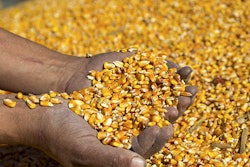
China’s Soybean Imports Were Down in April
- According to customs data, April soybean imports fell 12% from last year as bad weather delayed cargoes from Brazil.
- Soybean imports of 6.716 million tonnes in April were down from 7.64 million tonnes a year ago, but were higher than the 4.28 million tonnes in March.
- China's weekly soybean stocks as of 5/6/20 rose to 4.26 million tonnes, up from 3.31 million tonnes in late March, the lowest since at least 2010.
- Weekly soymeal inventories were at 185,500 tonnes, after hitting a record low on April 19.
FBN’s Take On What It Means: Supply shortages started to ease at China's southern ports in the second half of April as more cargoes began to arrive due to improved weather conditions in Brazil. A large volume of beans are expected to land in May and June as the number of shipments from Brazil hit a record high in March and April. Imports from the US might not rise significantly in the short term, but are expected to increase in the future as supplies from other origins are diminished.
Cold Snap May Damage Some Crops
- The cold temps could damage some of the recently emerged summer crops in the Midwest and may raise some threat to soft wheat.
- Newly emerged corn in the upper Midwest will feel the effects of frost and freezes Friday and Saturday mornings.
- Freezing temps may also occur southward into a part of Iowa, extreme northern Missouri, northern and central Illinois and northern Indiana Saturday morning.
- SRW in the Corn Belt is the boot to heading stage and temps below 30 could hurt more advanced crops.
FBN’s Take On What It Means: Crops will begin to develop again as weather conditions improve next week. Some replanting may take place even though crops would likely recover. It does not look like hard freezes will be widespread enough to cause significant damage to the soft wheat crop, but depending on how cold and how far south temperatures dip, some damage can occur.
The risk of trading futures, hedging, and speculating can be substantial. FBN BR LLC (NFA ID: 0508695)










